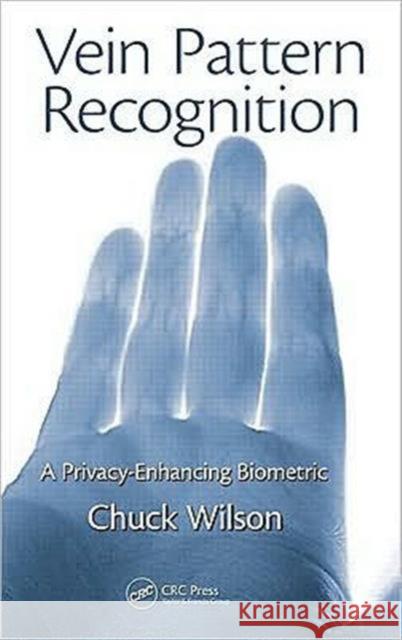Vein Pattern Recognition: A Privacy-Enhancing Biometric » książka
Vein Pattern Recognition: A Privacy-Enhancing Biometric
ISBN-13: 9781439821374 / Angielski / Twarda / 2010 / 307 str.
Vein Pattern Recognition: A Privacy-Enhancing Biometric
ISBN-13: 9781439821374 / Angielski / Twarda / 2010 / 307 str.
(netto: 185,01 VAT: 5%)
Najniższa cena z 30 dni: 186,33
ok. 22 dni roboczych
Dostawa w 2026 r.
Darmowa dostawa!
As one of the most promising biometric technologies, vein pattern recognition (VPR) is quickly taking root around the world and may soon dominate applications where people focus is key. Among the reasons for VPR s growing acceptance and use: it is more accurate than many other biometric methods, it offers greater resistance to spoofing, it focuses on people and their privacy, and has few negative cultural connotations. Vein Pattern Recognition: A Privacy-Enhancing Biometric provides a comprehensive and practical look at biometrics in general and at vein pattern recognition specifically. It discusses the emergence of this reliable but underutilized technology and evaluates its capabilities and benefits. The author, Chuck Wilson, an industry veteran with more than 25 years of experience in the biometric and electronic security fields, examines current and emerging VPR technology along with the myriad applications of this dynamic technology. Wilson explains the use of VPR and provides an objective comparison of the different biometric methods in use today including fingerprint, eye, face, voice recognition, and dynamic signature verification. Highlighting current VPR implementations, including its widespread acceptance and use for identity verification in the Japanese banking industry, the text provides a complete examination of how VPR can be used to protect sensitive information and secure critical facilities. Complete with best-practice techniques, the book supplies invaluable guidance on selecting the right combination of biometric technologies for specific applications and on properly implementing VPR as part of an overall security system. "
Biometric technologies vary in capability, performance, and reliability. One of the most promising emerging technologies, vein pattern recognition (VPR) is more accurate than many other biometric methods, offers greater resistance to spoofing, and focuses on people. Exploring privacy issues and the general concept of personal identity, this book delves into real-world biometrics applications and discusses the emergence of this reliable but underutilized technology. The author introduces the myriad applications of VPA technology and its current implementations, which include, among others, its widespread use in Japan in banking (in lieu of cards and PIN numbers) for accessing bank accounts.











